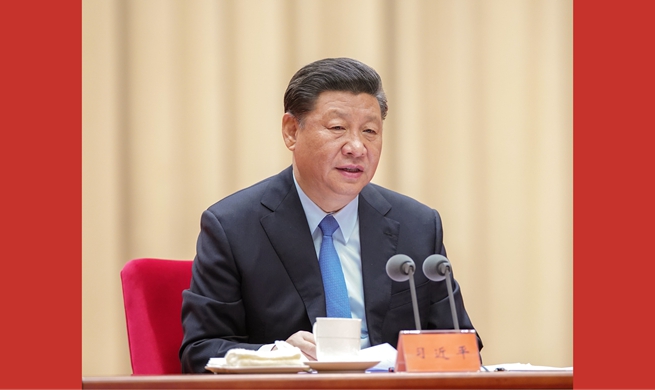NICOSIA, June 1 (Xinhua) -- Cyprus introduced a General Health System on Saturday, which the country's president, Nicos Anastasiades, hailed as "the biggest reform ever" in the eastern Mediterranean island.
The system, known as GESY from the Greek acronym for General Health System, was the culmination of heated discussions which dragged on for 20 years. It was made possible thanks to the courage of one man to clash with political parties, the powerful Medical Association and private hospitals, and also with insurance companies.
George Pamporides, a lawyer, was appointed health minister in June, 2015, and in July, 2017, he managed to have the necessary legislation for the implementation of GESY passed by parliament. He did not accept a new term as government minister after presidential elections in 2018.
"A historic day has dawned on the country. A day that possibly marks the biggest social conquer in the history of the Republic of Cyprus...Good start," President Anastasiades twitted.
On the eve of the introduction of GESY, Anastasiades dismissed suggestions to postpone the start of the scheme because of lack of adequate training of doctors and pharmacists in the use of the computer program which manages the scheme.
Also, programmers worked throughout the night to remove glitches from the system.
Health Minister Constantinos Ioannou also dismissed suggestions to put off the introduction of the system.
"There will be problems and obstacles. We are aware of this and we are expecting this. The ideal would be to be completely prepared, but as the ideal is not possible, we are proceeding with what's possible," he told a news conference.
Under the new health system, every citizen of Cyprus, and also EU citizens, will be eligible to have all his medical expenses covered by the Health Insurance Organization (HIO), which collects contributions from employees, employers, self-employed people, public officials and the state.
Employees and pensioners have 1.7 percent of their income paid to the HIO, with employers contributing 1.85 percent of the salary of each employee and the government paying 1.65 percent for every eligible member of GESY.
The contributions will stay in force during the first phase of GESY, which will cover only visits to the personal or family doctor and medication.
When the second phase of the scheme comes into force as of March 1, 2020, it will cover treatment in hospital by specialist doctors, and the contributions will be increased to 2.65 percent for employees and pensioners, 2.9 percent for employers and 4.75 percent for the state for each eligible member of the scheme.
Eligible members of the scheme will pay from between one euro for each prescribed medicine and for blood tests to 10 euros for more expensive examinations, such as an X-Ray or an MRI.
The health minister said that a satisfactory number of private general practitioners have signed contracts with HIO to work for GESY and added that he also expects a good number of specialists and private hospitals to register by the introduction of the second phase next March.
Existing government hospitals, which currently care for about three quarters of the eastern Mediterranean island's population, will gradually be turned into autonomous units and will compete with private hospitals.













